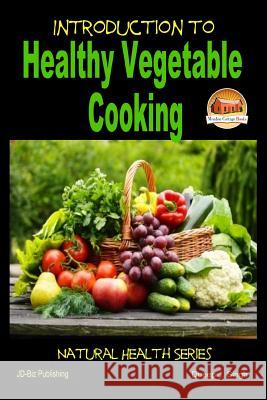Introduction to Healthy Vegetable Cooking » książka
Introduction to Healthy Vegetable Cooking
ISBN-13: 9781505737912 / Angielski / Miękka / 2014 / 66 str.
Introduction to Healthy Vegetable Cooking Table of Contents Introduction Vegetables Classification Essential Nutrients in Vegetables Dietetic Value of Vegetables Choosing and Purchasing Vegetables What Happens When Vegetables Are Cooked So Why Cook Vegetables? Different Cooking Methods General rules for cooking And Serving Vegetables Preparation for Cooking Different vegetables - Washing and Rinsing Green Leafy Vegetables Boiling Vegetables Roots and Tubers Green Vegetables Approximate Time for Boiling Vegetables. Steaming vegetables Stewing Braising Mirepoix Frying Vegetables Baking Vegetables Conservative Method Vegetable Purees Vegetable Economy Tips Serving Potatoes Boiled Potatoes Steamed potatoes Boiled Potatoes in Jackets Baked Potatoes Roasted Potatoes Potato Croquettes Potato Ribbons Potato Chips Potato Straws Conclusion Author Bio Publisher Introduction Many people picking up this book are going to wonder why I would want to write a book on healthy vegetable cooking. After all, everybody knows how to cook vegetables. You either steam or bake them or broil them, or fry them, or grill them or eat them raw. Well, luckily for us, we have begun to fully understand the importance of vegetables in our daily diet. Until more recent years, the use of vegetables in our diet was much neglected. Their dietetic importance was insufficiently appreciated. The method of cooking was wasteful and also inferior in many parts of the world when compared to cuisines where vegetable cooking was that part of the daily routine Due to a worldwide appreciation of the importance of vegetables to keep you healthy and strong, more and more people are insisting on home grown vegetables grown the organic way. Greater attention and encouragement is being given to such enterprising gardeners. Such growers for the markets are being human, better facilities. Along with better marketing locations and opportunities, with plenty of their produce being imported, vegetable foods are gaining importance globally as one of the best sources of income. With the growth of vegetarianism as a way of living and of the habit of eating less meat, greater attention is also being given to this branch of cookery. However, many people still think vegetable cooking to be boring, because there is a lack of variety in the food itself. There is plenty of waste before cooking. Leftover vegetables' being put into one dish, cooked in a monotonous method and then served up has given vegetables a bad press throughout the years. In fact, up to 20 years ago, cooks in many parts of the world still cooked vegetables, the traditional way, followed by their ancestors with absolutely no change. That was to dump it in boiling water, and allow it to over boil and become a complete hash and mash. And then it was dished up on a platter in a rather sloppy and sloven fashion, where you could either eat it or leave it. The diners often left it. They survived on the accompanying meat. That is why they decided that meat was a much better lunch and dinner item than vegetables. And they transmitted this attitude on to the people around well as well as to their children. That is why the art of vegetable cookery never got the chance to spread its wings and flourish. Also vegetables in addition to being accompaniments to meat dishes were also served as side dishes or as a separate course altogether in the menu. So if you did not like vegetables, you could skip that particular course. Luckily, now vegetables are being used as a major part of the main meal's course as a contrast to other dishes or as tasty dishes on their own."
Zawartość książki może nie spełniać oczekiwań – reklamacje nie obejmują treści, która mogła nie być redakcyjnie ani merytorycznie opracowana.











